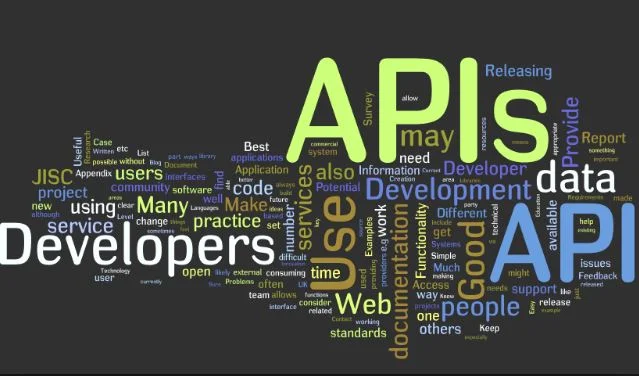The 50 Most Useful APIs Every Developer Should Know
 Ahmed Raza
Ahmed Raza
APIs, or Application Programming Interfaces, are the backbone of modern web and mobile applications. They enable developers to harness the functionality of other applications, leverage massive datasets, and quickly add complex features to their projects. APIs make it possible for different applications to communicate, share data, and create new synergies by connecting services across platforms. In this article, we’ll explore 50 of the most essential APIs for developers today, breaking them down by category and illustrating specific use cases to spark ideas for how you can integrate these powerful tools into your applications.
Why APIs Are Essential for Modern Development
APIs are vital because they provide a standardized way for applications to “talk” to each other. Whether it’s integrating Google Maps into an app, accessing Twitter data, or adding payment processing, APIs allow developers to create rich user experiences without building every feature from scratch. Here are a few real-world use cases:
E-commerce Apps: Integrate payment APIs like Stripe and PayPal for easy transactions.
Social Media Insights: Use social media APIs to pull real-time data from platforms like Twitter and Instagram to engage with users.
Weather Updates: Use APIs like OpenWeatherMap to provide users with up-to-date local weather information in a travel or outdoor activity app.
1. Google APIs
Google provides a vast array of APIs for nearly every development need, from mapping to machine learning.
Google Maps API: Documentation
Use Case: Integrate interactive maps into a tourism app, letting users find points of interest and get directions.Google Analytics API: Documentation
Use Case: Track user behavior in a mobile game to understand which features drive engagement.YouTube API: Documentation
Use Case: Build a video-based social platform where users can search and embed YouTube videos.Google Translate API: Documentation
Use Case: Offer multi-language support in a global app by translating user-generated content in real-time.Google Geocoding API: Documentation
Use Case: Convert user-provided addresses into coordinates for a property search platform.
2. Yahoo APIs
Yahoo offers valuable APIs for media and finance applications.
Yahoo Finance API: Documentation
Use Case: Build an investment app that pulls in real-time stock data and market news for users.Yahoo Weather API: Documentation
Use Case: Add accurate weather forecasts to a farming app, helping users plan based on conditions.
3. Social Media APIs
Social media APIs make it easy to integrate features like social sharing, logins, and data mining.
Twitter API: Documentation
Use Case: Create a trend-tracking tool that visualizes popular hashtags and keywords in real-time.Facebook Graph API: Documentation
Use Case: Enable social logins and gather user data for a personalized e-commerce experience.Instagram API: Documentation
Use Case: Power a photo gallery feature in a travel app, pulling in images tagged by location.LinkedIn API: Documentation
Use Case: Build a job search platform that integrates user profiles, job postings, and recommendations.Pinterest API: Documentation
Use Case: Create a visual shopping app that curates popular and trending Pinterest items.
4. Marketplace APIs
Marketplaces are excellent sources for accessing inventory and facilitating transactions.
eBay API: Documentation
Use Case: Create an aggregator app that displays eBay listings for vintage collectibles, with alerts for new items.Etsy API: Documentation
Use Case: Build a curated shop featuring handmade goods from Etsy, letting users purchase directly.Amazon Product Advertising API: Documentation
Use Case: Develop a price comparison tool that lets users see product details and prices on Amazon.Shopify API: Documentation
Use Case: Provide an online store with real-time product availability and order status updates.Foursquare Places API: Documentation
Use Case: Enable users to discover local attractions in a city guide app by displaying top places from Foursquare.
5. Unique and Specialized APIs
Some APIs are incredibly specific, allowing for specialized data retrieval and innovative functionality.
Census API: Documentation
Use Case: A real estate app can use Census data to provide demographic insights on neighborhoods.SoundCloud API: Documentation
Use Case: Add music streaming and sharing functionality to a lifestyle app.Tastedive API: Documentation
Use Case: Provide book, music, and movie recommendations in an entertainment discovery app.Bit.ly API: Documentation
Use Case: Create shortened URLs for links in a marketing dashboard, tracking click-through rates.OpenWeatherMap API: Documentation
Use Case: Integrate localized weather updates into an outdoor events platform.
6. Financial and Payment APIs
Payment and finance APIs help streamline transactions and connect users with financial data.
Stripe API: Documentation
Use Case: Add secure, seamless payment processing to an e-commerce website.PayPal API: Documentation
Use Case: Integrate PayPal checkout in a mobile marketplace app for quick payments.Square API: Documentation
Use Case: Support mobile payments in a food truck app that integrates order and inventory management.Plaid API: Documentation
Use Case: Power budgeting and financial tracking apps by connecting to users’ bank accounts.Coinbase API: Documentation
Use Case: Allow cryptocurrency transactions and wallet management within a trading app.
API Mashups: Creativity Through Combination
Combining APIs, known as “API mashups,” lets developers bring together different datasets and functionalities in unique ways. Here are some creative examples:
Trendsmap: Mashes up Twitter’s trending data with Google Maps to display trending topics by location.
Housing Maps: Uses Google Maps and Craigslist data to show property listings geographically.
Spell with Flickr: Integrates Flickr’s photo API to create a “ransom note” style image from different photos.
Getting Started
If you're new to API integration, start small by working with simpler APIs like OpenWeatherMap or News API. Postman is a great tool for testing API requests, and Codecademy offers a useful course on using jQuery and AJAX for API requests.
Conclusion
APIs are invaluable tools in a developer’s toolkit, enabling efficient access to data and functionality across the web. Whether you’re creating a simple app or a complex platform, knowing which APIs to use and how to combine them creatively can set your work apart. Explore these documentation links, experiment with different integrations, and consider how you can use APIs to turn your ideas into fully-realized applications.
Subscribe to my newsletter
Read articles from Ahmed Raza directly inside your inbox. Subscribe to the newsletter, and don't miss out.
Written by

Ahmed Raza
Ahmed Raza
Ahmed Raza is a versatile full-stack developer with extensive experience in building APIs through both REST and GraphQL. Skilled in Golang, he uses gqlgen to create optimized GraphQL APIs, alongside Redis for effective caching and data management. Ahmed is proficient in a wide range of technologies, including YAML, SQL, and MongoDB for data handling, as well as JavaScript, HTML, and CSS for front-end development. His technical toolkit also includes Node.js, React, Java, C, and C++, enabling him to develop comprehensive, scalable applications. Ahmed's well-rounded expertise allows him to craft high-performance solutions that address diverse and complex application needs.